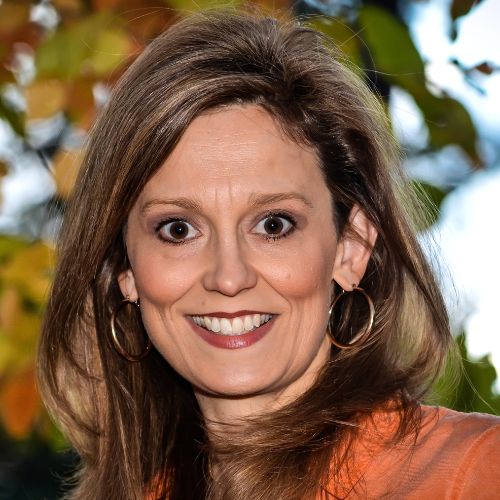This guest post was written by Amy Fenton Lee.
In 1969 Sesame Street introduced a cast of everyday neighbors to carry minor plotlines as teaching tools for millions of American preschoolers.
The groundbreaking children’s television series demonstrated how people with disabilities integrated into the everyday lives of the show’s other characters.
Introducing Linda the librarian who was deaf and Tarah the child who used a wheelchair helped the juvenile audience appreciate the unique qualities and needs of these special characters.
Forty years after Sesame Street’s inception, our everyday culture is still evolving in its understanding and inclusion of individuals with special needs.
Laws require public schools to work with parents and children for creating individualized education programs (IEPs) for many children with a diagnosed disability.
However, helping families of children with special needs assimilate among families of typically developing children remains challenging.
Any mother of a child with special needs will tell you that invitations to shared play dates and birthday parties with typical children are rare and highly valued.
Unfortunately, families of children with special needs often experience the greatest disappointment inside their own congregations.
Jackie Mills-Fernald, director of McLean Bible Church’s disability ministry, “Access” (McLean, VA) explains, “The church is behind the curve in creating and encouraging an inclusionary environment. The ministerial staff often lacks an understanding of the special needs population, as a result, the average church member or lay person isn’t connecting with individuals with special needs or their families. The missed connections are missed blessings for everyone involved.”
Children’s Ministry Team = Family’s First Advocate
For families of children with special needs, their likelihood of success in a church often hinges on the help of the children’s ministry team.
Finding a church that will accommodate a child with special needs into church programming is the first obstacle.
Weaving the family into the fabric of the congregation is the next objective.
While children’s ministers can’t take on the full responsibility of making the integration goal a reality, they can be the family’s first means of networking inside the church.
“Few things happen easily for the family of a child with special needs,” explains Kathy Burr, Minister to Children at Christ Chapel Bible Church (Ft. Worth).
“Our special needs buddies (matched church volunteers) know that in some cases, they are the primary connection to the church for the entire family of a member with special needs. We have seen these volunteer buddies step into the lives of their assigned families when personal problems surface, even when they seem separate of the special need.”
Introducing the family to other ministries and appropriately relaying their story to key staff and lay leaders may ease the family’s entrance into their faith community.
Due to a sheer lack of time (if not emotional energy), parents of children with special needs may struggle to develop their own relationships inside the church.
And sometimes these parents are immersed so deeply in the physical and emotional requirements of the special need, that searching for friendship is secondary to the goal of surviving.
Introducing the family of a child with special needs to a sensitive and welcoming typical family may be an invaluable service for a typically developing sibling.
The typically developing sibling inside the family with a disability is often overlooked.
Connecting this child with another family of a typical peer may begin a relationship that exposes this sibling to angst-free environments, crucial to their own social and intellectual growth.
Professional Leadership Can Be An Asset
Twelve years into their special needs programming, Christ Chapel Bible Church recently assigned a part-time children’s ministry associate the position of “special needs director.”
As with many churches pioneering the path forward in special needs programming, Christ Chapel recognizes the benefits of having a dedicated staff resource committed to understanding and effectively ministering to the special needs community.
In churches where a lay leader heads up the special needs programming, it is crucial that a church staff member with a heart for the ministry assume the role of on-staff ministry liaison.
Lay leaders don’t have privy to the weekly meetings and networking opportunities of the church staff.
The on-staff appointed special needs champion may help facilitate a broader church experience for ministry participants and their families.
Facilitate the Church Conversation
After a set of articles I wrote on reaching out to people in crisis, a church asked me to speak to their monthly Moms-n-More group on relational etiquette.
Towards the end of the session, I touched on my upcoming writing topic, reaching out to families with special needs.
I felt compelled to share some common themes that were emerging from my interviews with mothers of children with autism, Down syndrome, various developmental obstacles, and other life-altering diagnoses.
These parents felt largely unheard and misunderstood.
Many wanted to educate their peers and parents of typically developing children.
For parents of children with special needs, their experiences with friends or other parents inside the church were no different or better than with those outside their congregation.
The mothers of children with special needs all longed for greater connection and desired for their children to be known and loved.
Interviewed mothers offered pointers for appropriate questions and comforting responses as they yearned to be engaged by their peers.
Every parent interviewed shared at least one disappointing experience inside their church or Bible study group.
Based on my feedback after speaking that day, the Moms-n-More audience was most moved, surprised and appreciative of the time devoted to relating to families with special needs.
One of the young mothers in the audience wrote me after the speaking engagement: “My sister has a child that recently received a devastating and life-changing diagnosis. I have never known what to say so I pretty much avoided the topic. Thank you for giving me the words to start conversations with my own sister. ”
Congregations may do their greatest service in giving a voice to families with special needs.
While some parents choose to remain private regarding their child’s diagnosis, most are candid and welcome the opportunity to educate.
Creating occasions during worship services and smaller-setting Bible studies for these members to share their stories will be life-changing for those listening.
Churches can also help educate their congregation by bringing in outside professionals to address special needs topics.
Inviting a local pediatric therapist to address a group of young women about developmental milestones will accomplish two goals:
- educate a curious set of mothers about their own children
- inform these same mothers about their peers’ children who have autism, sensory integration disorder, and other commonly seen developmental issues.
Find appropriate church forums to tackle the myths of various diagnoses.
My interviews revealed that families of a child with autism repeatedly shared their battles with public misperceptions.
Most people aren’t aware of the incredible capabilities of children who have high-functioning forms of most diagnoses.
Reaching Beyond Children’s Ministry
Jackie Mills-Fernald, director of McLean Bible Church’s Access Program says, “Disability ministry cuts across every ministry of the church.”
The women’s ministry director, discipleship pastor, youth ministers, and the list goes on, all need to have awareness and sensitivity to the participants in their own programs whose lives are impacted by a family member with a special need.
Families of children with a disability need spiritual encouragement and often physical help outside of their special needs support groups.
After all, typical families are more likely to have availability for assistance than other families with their own special needs.
Nearly every interviewed source who serves the special needs community (both secular special needs professionals and knowledgeable ministers) cited the high rate of marital strife inside families where a disability is present.
Every family member is affected by the countless appointments and financial requirements resulting from special needs or disability.
Jackie Mills-Fernald explains, “We’ve got to meet the emotional and physical needs of this entire family before we earn the right for spiritual influence.”
Removing the fear of approach will open a new world to families affected by a disability or diagnosis.
Starting the conversations and interactions between the members with and without a disability is half the battle.
Churches will do more to recruit volunteers for their special needs ministry by assisting the members of the family in integrating into the regular environments.
Darby Gillam, a mother of a child with Down syndrome and founder of Fort Worth’s Southcliff Baptist Church special needs program says, “Once we engage church members and show them how to love a child with special needs, they want to work in our ministry.”

About Amy
Amy Fenton Lee enjoys equipping churches for ministry to individuals with special needs and their families. Along with her husband and young son, Amy lives in Atlanta, GA. For more on Amy see www.amyfentonlee.com.
Sidebar – Interview Quotes
“We left our church after our son with Down syndrome was born. The nursery workers were so afraid of him.”
“Women from my weekly Bible study group have mentioned in passing that they would assist me if I ever asked. I treasure my fellowship with these precious women and I sense they do pray for me. However none have ever offered an act of service or invited dialogue where I could share a specific request for help.”
– Georgia mother of three children with special needs: Down syndrome (age 6), Apraxia (age 4), and auditory processing disorder (age 2)
“My desire was for our friends to accept and love my child for who he is. I wanted them to see him as a unique creation, treasured by God.”
“After our son’s autism diagnosis, I struggled for a time with bitterness toward our church family for their lack of response. I wanted to talk about what we were processing. I think people didn’t know what to say and so they mostly remained silent. “
“Another couple in our congregation with an older, similarly diagnosed child sought us out after our child’s diagnosis. Their offered words of hope and encouragement were invaluable to us.”
“Everyone had an acquaintance with a child with autism. So they felt what they knew about that child automatically applied to my newly-diagnosed son. And so many people had an opinion on what causes autism. I only wanted guidance from professionals. I simply needed empathy and listening ears from my friends.”
– Texas mother of a preschooler with Autism
“Many people offer to help. Most mean well but they don’t think you’ll take them up on the offer. I learned that people who inquired for a way to help a second time were usually sincere. The ones that suggested assistance options (babysitting or a meal) could be counted on to follow through. “
“I was constantly offered well-meaning but unasked-for advice from people who weren’t educated, professionals. And many people followed up their advice with the question ‘Have you prayed?’ Of course, I had prayed!”
“A painful moment for our child came in school when another child from our church shunned her for her disability.”
“One of the greatest gestures and gifts our church offered was providing an annual picnic for the families of children with special needs.”
– Georgia mother of an adult child with Cerebral Palsy
“Our son’s Sunday school teachers and special needs buddy have been great about treating him like all the other children. They see him as a child and not a diagnosis.”
– Alabama mother of a preschooler with Down syndrome





